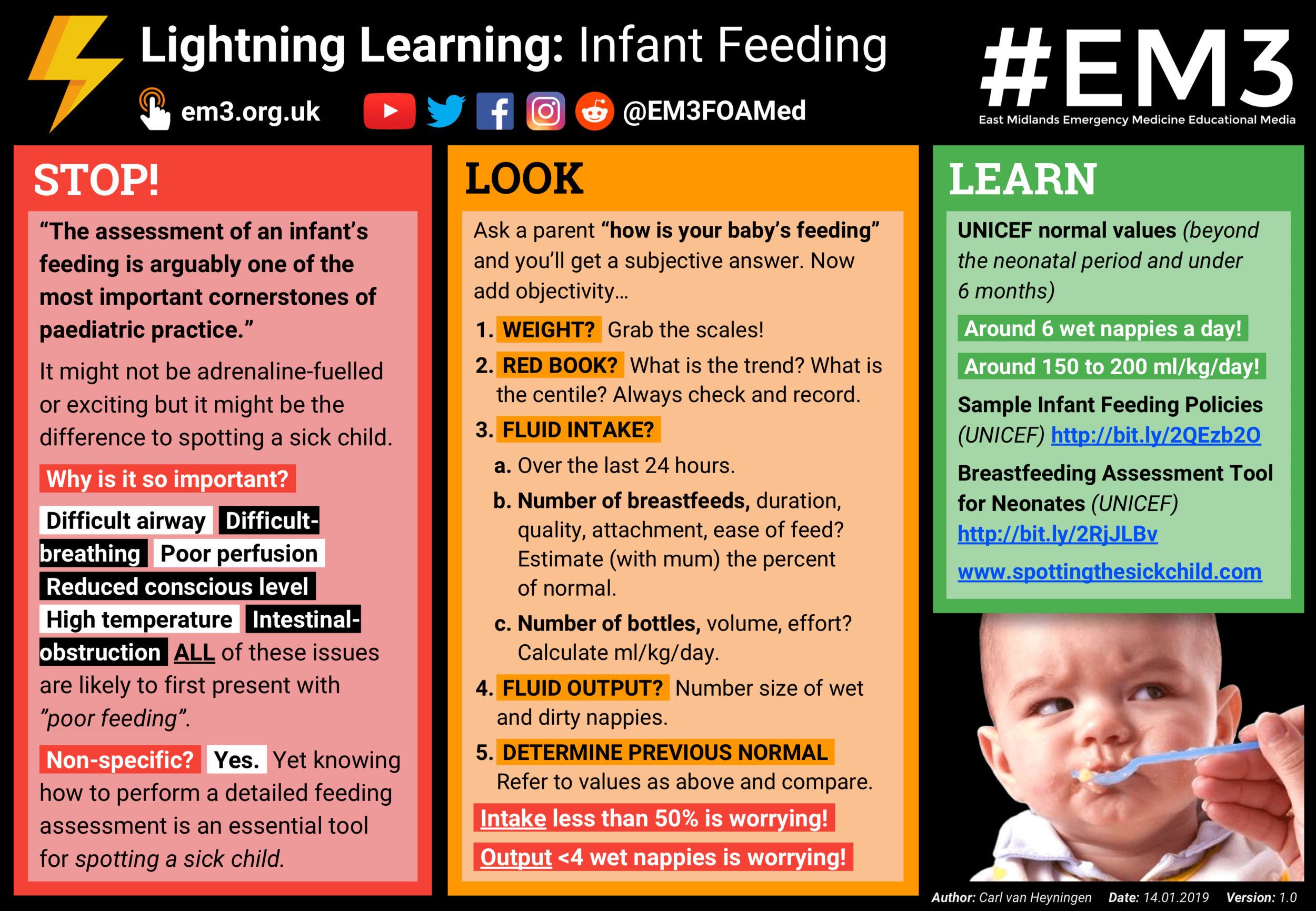Lightning Learning: Infant Feeding
““The assessment of an infant’s feeding is arguably one of the most important cornerstones of paediatric practice.””
STOP!
It might not be adrenaline-fuelled or exciting but it might be the difference to spotting a sick child.
Why is it so important?
Difficult airway, difficult breathing, poor perfusion, reduced conscious level, high temperature, intestinal obstruction… ALL of these issues are likely to first present with ”poor feeding”.
Non-specific?
Yes. Yet knowing how to perform a detailed feeding assessment is an essential tool for spotting a sick child.
LOOK
Ask a parent “how is your baby’s feeding” and you’ll get a subjective answer. Now add objectivity…
WEIGHT? Grab the scales!
RED BOOK? What is the trend? What is the centile? Always check and record.
FLUID INTAKE?
Over the last 24 hours.
Number of breastfeeds, duration, quality, attachment, ease of feed? Estimate (with mum) the percent of normal.
Number of bottles, volume, effort? Calculate ml/kg/day.
FLUID OUTPUT? Number size of wet and dirty nappies.
DETERMINE PREVIOUS NORMAL… refer to values as above and compare.
Intake less than 50% is worrying! Output <4 wet nappies is also worrying!
LEARN
UNICEF normal values (beyond the neonatal period and under 6 months) = about 6 wet nappies a day and roughly 150 to 200 ml/kg/day!








